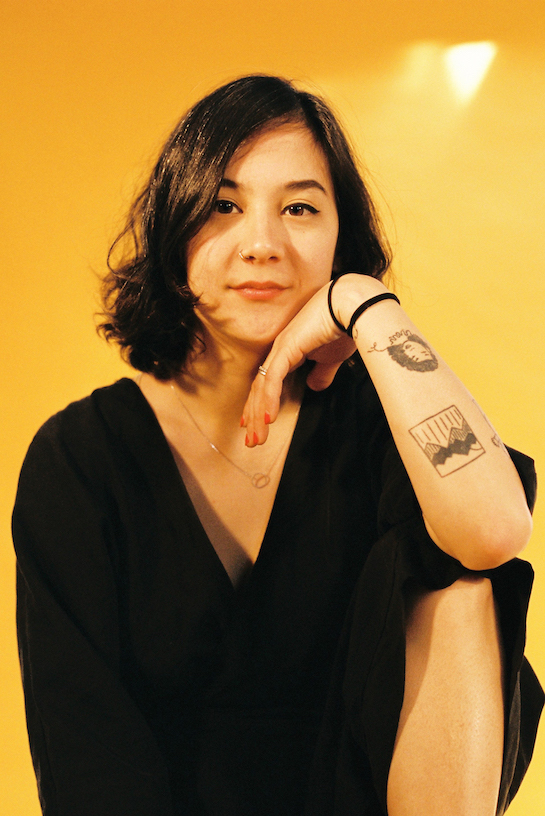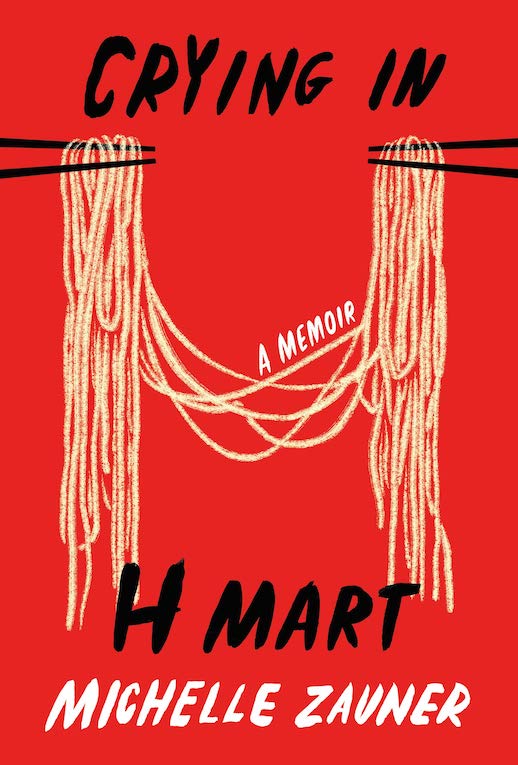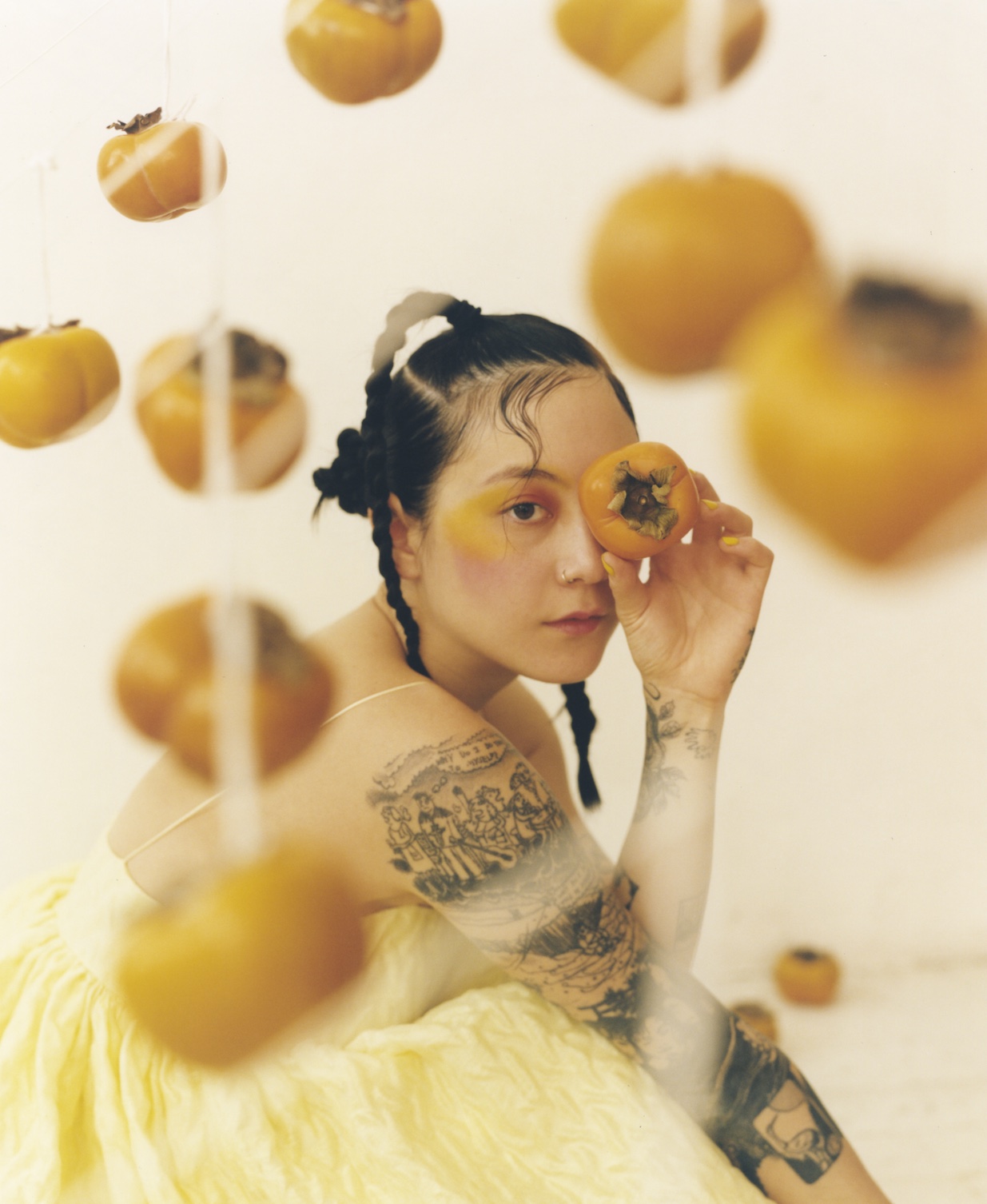Today we spoke with Michelle Zauner, musician who performs under the name of Japanese Breakfast, about her acclaimed book “Crying in H mart”. A memoir about grief, identity and food.
In “Crying in H Mart”, you say food was how your mother expressed her love to you. How do you express love to people you care the most?
I also tend to prepare nice meals and snacks for my loved ones. If my husband is working hard on a project or frustrated by something, my first inclination is always to prepare something nice to lift his spirits, a cold beer, an appealing snack plate, an elaborate meal. I think love is about remembering small details about people, things they like, things they don’t like. I like to keep a running list of desires my loved ones mention in passing, for instance, a kitchen scale or a house plant, and surprising them with it on holidays or no occasion at all.
You don’t speak Korean fluently yet H Mart with its groceries are a bridge to your Korean roots. How do you relate to your Korean identity? Have you ever experienced some sort of crisis?
I think I’ve always felt like I’ve never really belonged anywhere, and that type of crisis was definitely difficult for me when I was a teenager. After my mom passed away, I felt like part of my connection to my Korean identity had been severed, and so I learned how to cook Korean food as a way to keep interacting with it, to preserve it. For awhile I was taking Korean language lessons and hope to continue again when my schedule calms down. I also try to visit Korea as much as I can.
In the last year sadly many people have lost a beloved one because of COVID-19. Do you think your book can give people some comfort and an example on how to manage grief?
I hope so. I think grief is so individual and challenging, but it can sometimes help to discover that other people have endured similar hardships. I can also see people not feeling prepared to read something like this in the wake of more recent loss.
Having been through the loss of my father last year, while reading the book I somehow could relate to your feelings. One of the things that this experience taught me was the importance of remembering and celebrating the moments of happiness you have shared, and letting go of the anger, and any resentment you might have. I also believe that only people who have gone through the same experience of loss can fully understand you. How has this experience changed your approach to life?
I definitely felt the same way after my mom died. There’s a line in one of my songs that makes an appearance in the book as well–it felt like the whole world had divided in two types of people, those who had felt pain and those who had yet to. I think it some ways this experience opened me up to a greater feeling of compassion for others, particularly those who have lost someone. I feel like more than anything, my mother’s death lit a fire in me, it made me realize how short and precious life is

Music and writing have always had a healing power for you? Writing this book was also therapeutic for you?
I’ve always turned to music and writing to help me navigate my feelings and investigate my life. I do feel like it has a therapeutic, healing power. After publishing the book, I felt a real relief and at peace with what I went through in many ways.
When was the last time you visited Korea? Is there a scene or spot that you specifically miss much? Where or what kind of culture experience will you recommend to travellers?
The last time I visited was in May 2019. My band played a concert in Hongdae and then I stayed for an extra three weeks to finish writing the rough draft of my book. I really love the Hongdae neighborhood, there are so many wonderful venues and restaurants. I love hanging out at Gopjang Jeongal and visiting Gimbap Records. I would highly recommend tourists visit Gwangjang Market.

You mention Karen O of the Yeah Yeah Yeahs in your book. I have been listening to their music during my student years as well. In which way has she inspired you to pursue your musical career?
She was the first half Korean woman I ever saw in music, probably the first Asian American I’d ever seen in this very white, male dominated industry. She just obliterated the docile asian female stereotype, and I have always admired her range as this explosive, punk performer who can also sing a heart wrenching ballad that can bring you to tears. She made me think it was possible that someone like me could command attention and admiration.
Which songs or musicians did you listen to while you were writing your memoir?
I honestly can’t listen to much music when I’m focusing on writing. If I did it was mostly ambient or classical stuff like Brian Eno or Ryuichi Sakamoto.
Most people tend to associate Korean music with K-pop, but in reality the Korean indie and alternative scene is very alive. Many Korean bands, playing traditional and non-traditional Korean music, are also touring and are starting to be known in Western countries. Is there a Korean artist or band you would like to collaborate with?
I hope someday I can collab with Se So Neon! I think So-yoon is so talented and cool.
I would like to talk about Maangchi. I have followed her since the beginning, and for me living in Italy, she was one of the first people talking about Korean food in an approachable way with her fun and reassuring personality. How was meeting her?
I felt so lucky! She is one of the most warm and generous people I’ve ever met. She actually had me over for dinner on my 30th birthday and made it so special. I really love her!
On June 4th you’ll release your third album – Jubilee – what can we expect from it?
I think it is confident, ambitious, bombastic. The arrangements are richer and larger, vibrant and joyous. I think it’s our best work yet!
Written by Vincenzo Acampora, Claudia Gifuni e Chinghan Hsu
All photos courtesy of Tenatoms

